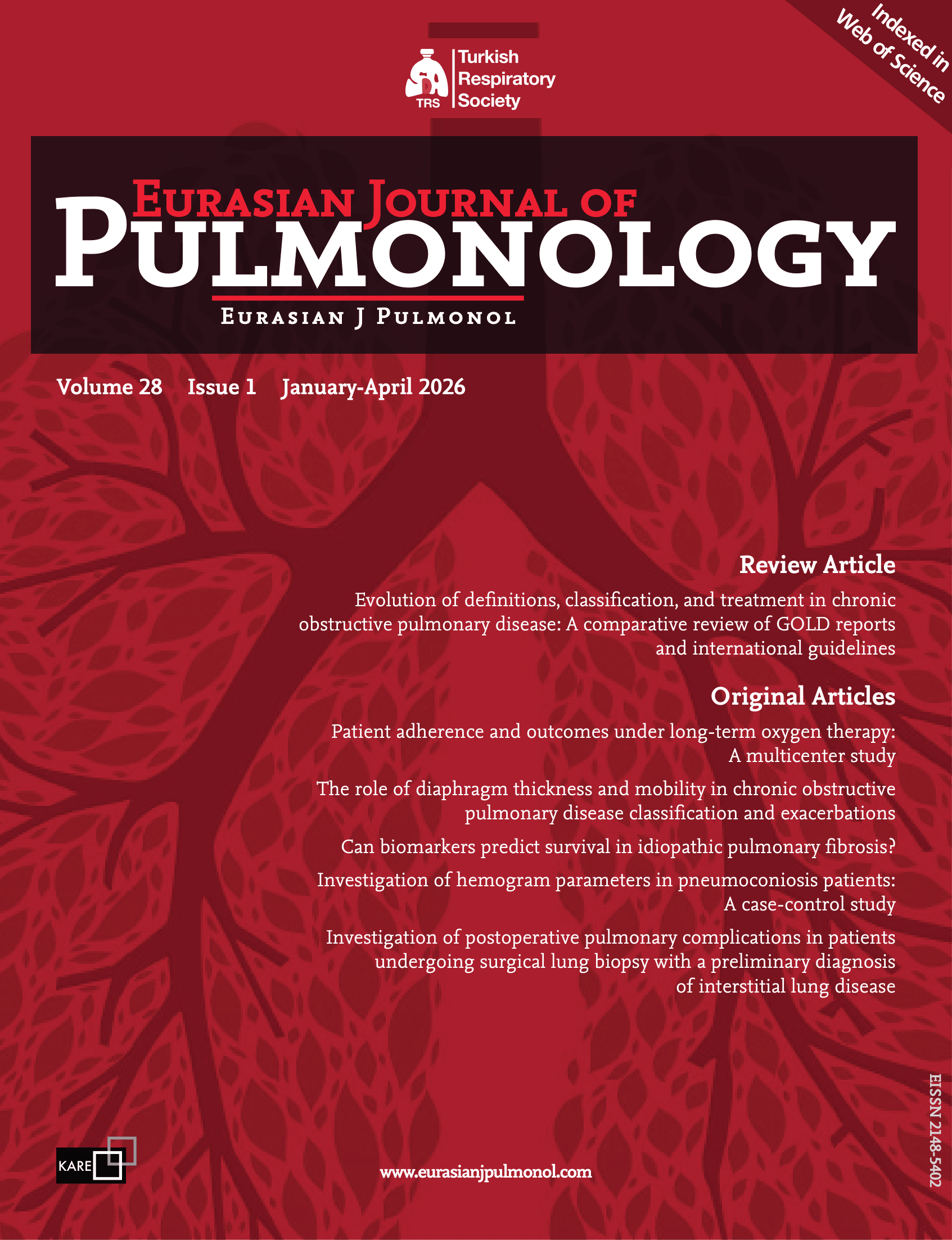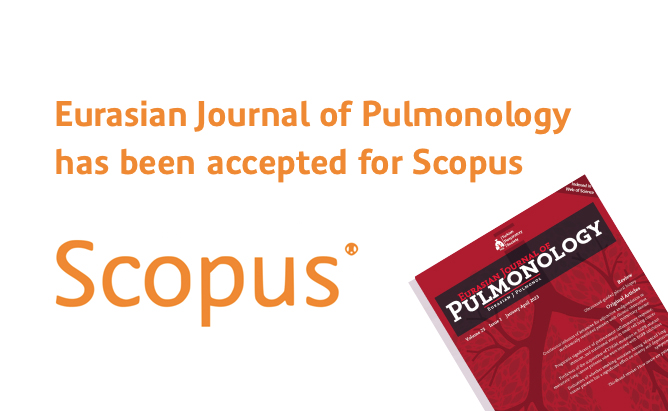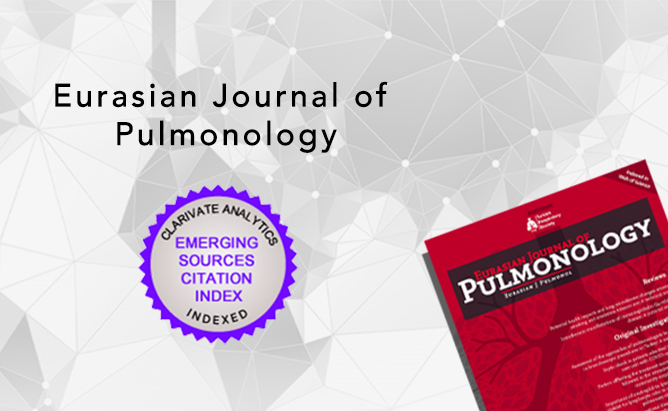2Department of Chest Diseases, Acibadem Hospital, Kayseri, Turkey
3Department of Pulmonary Diseases, Faculty of Medicine, Balikesir University, Balikesir, Turkey
4Department of Pulmonary Diseases, Faculty of Medicine, Ufuk University, Ankara, Turkey
5Department of Pulmonary Diseases, Erzurum Regional Training and Research Hospital, Erzurum, Turkey
6Department of Pulmonary Diseases, Faculty of Medicine, Bülent Ecevit University, Zonguldak, Turkey
7Department of Chest Diseases, Kocaeli Derince Education Research Hospital, Kocaeli, Turkey
8Department of Biostatistics, Hitit University, Çorum, Turkey
9Department of Chest Surgery, Cerrahpasa Medical Faculty, Istanbul University, Istanbul, Turkey
10Department of Chest Diseases, Canakkale 18 Mart University, Canakkale, Turkey
Abstract
OBJECTIVE: We aimed to determine the preoperative parameters that may predict postoperative pulmonary complications (POPCs) and the value of some current practical indexes in predicting POPCs. MATERIALS and
METHODS: Our study is a retrospective cohort study carried out in 9 different centers. Patients admitted to the chest diseases outpatient clinic for preoperative evaluation were followed up during the 6-month study period. Patients with or without postoperative complications were evaluated retrospectively, and the effect of some parameters and indexes recorded during the preoperative evaluation of chest diseases on POPC development was investigated statistically.
RESULTS: A total of 307 patients were included in the study. POPCs were observed in 100 patients (32.6%). About 13% of these complications were respiratory tract infections, 59% were respiratory failure, 45% were pleural effusion, and 42% were atelectasis, which were the most common pulmonary complications. The probability of experiencing POPCs by patients with chronic obstructive pulmonary disease (COPD) is 2.5 (1.18–5.67) times more than those without COPD. We determined that patients with the history of upper respiratory tract infection during the preoperative period are 5.3 times more likely to have POPCs; similarly, the number was 4.7 for patients undergoing cardiac operation and 3.3 for patients with interstitial infiltration.
CONCLUSION: The risk of pulmonary complications was higher for those with the history of upper respiratory tract infection during the preoperative period, those undergoing cardiac surgery, those with the shortness of breath, those with the history of COPD, and those with the reticular/interstitial infiltrations in the chest X-ray. These parameters should be examined carefully in the preoperative period and should be careful in terms of pulmonary complications that may develop during the postoperative period.









